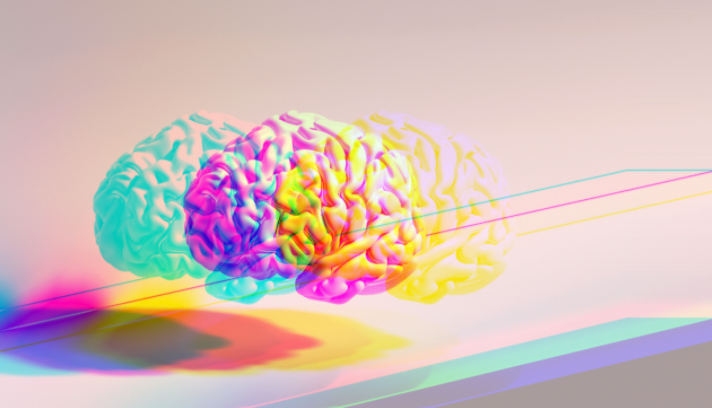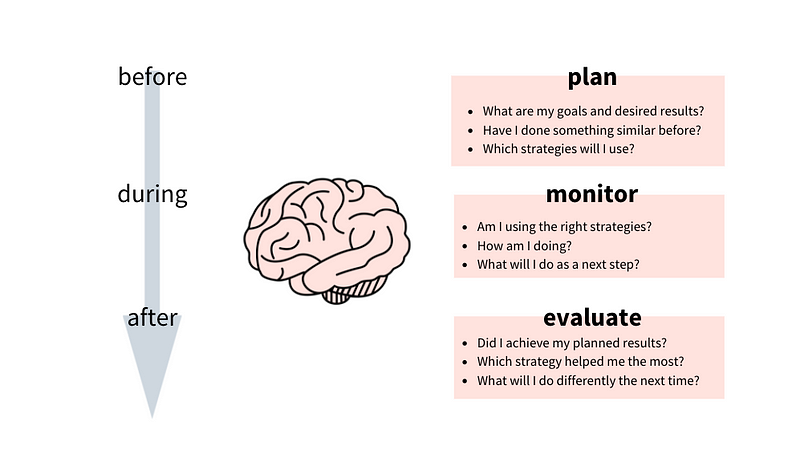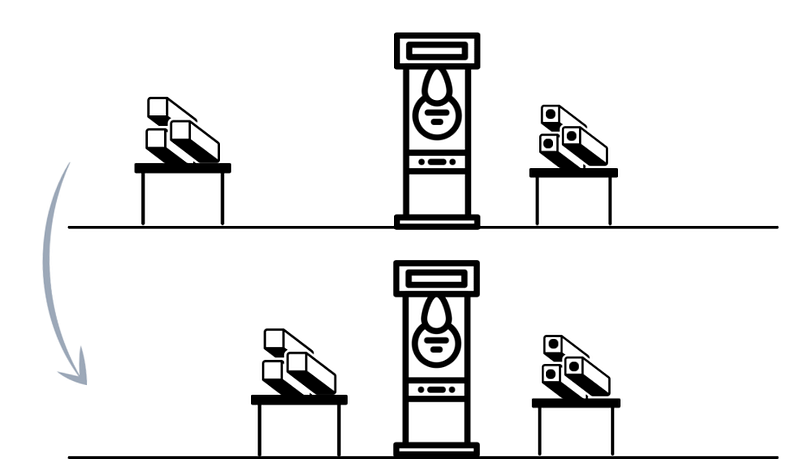Make metacognition work for you and become a learner for life.

Do you ever feel like you’re not learning fast enough?
If you ever worry you’re learning slower than you should, it might be because you’re missing out on one of the most effective thinking tools.
You’re not alone here. Most people use countless hours diving into a task without using metacognition.
In the following 5 minutes, you’ll learn what metacognition is and how you can use it to level up your learning.
Once you make it a habit to use this skill, you’ll never wonder whether you’re progressing fast enough.
The Power of Metacognition
“Metacognition is essential to successful learning because it enables individuals to manage their cognitive skills better and to determine weaknesses that can be corrected by constructing new cognitive skills,” educational psychologist Schraw writes.
Metacognition means noticing and understanding the way you think. Most people describe it as thinking about thinking, knowing about knowing, or becoming aware of your awareness.
Nancy Chick, Teaching Assistant Director at Vanderbilt University, says: “It refers to the processes used to plan, monitor, and assess one’s understanding and performance.”
But metacognition is more than that.
Your own experience is used to regulate and improve future learning behavior. You self-monitor and self-regulate. Thereby, you steepen the learning curve towards your desired goals.
A large body of research in educational sciences testifies the importance of metacognition in learning. Different studies show high performers have better metacognitive skills than low performers across various disciplines.
“The best performers observe themselves closely. They are in effect able to step outside themselves, monitor what is happening in their own minds, and ask how it’s going.”
— Geoff Clovin in “Talent is Overrated”
How You Can Unlock This Learning Superpower
You can rely on this skill when you clean your apartment, study for an exam, or learn any new skill. Here’s the process you need to include metacognition in your thinking.
According to research, three steps are necessary for unlocking your metacognition:

Before you start a task or learning endeavor, you plan. You think about your desired goal. You consider how you’ll use your time and which strategies you’ll apply.
Second, you use self-monitoring to remain aware of your progress. You question the steps you take and reevaluate whether you’re following your planned path.
Finally, you reflect on your performance. You evaluate what went well and what you can do better next time you approach the task or learning chunk.
While you might think reflecting on a task will slow you down, it will save you time and energy.
Here’s a personal story.
July 2009. It’s the first day of my summer holidays, and I open the door to my dad’s workshop. I see black dust and inhale the smell of welding. My dad is a blacksmith, and I’m about to work as a metalworker for the next four weeks.
The task is mundane, but I get paid on piecework. I treat the job like a game. The more parts I can perforate in a day, the more I earn. I can’t wait to get started. I push the parts into the punching machine, one hour after another.
A few days in, my dad asks me, “Haven’t you thought about how to make this easier for you?”
I looked around. I had no clue what he meant.
He then moved the table with the punches closer to the machine. The difference looked like this:

His improvement saved me two steps per task which gave me a precious extra hour a day.
More importantly, he taught me a lesson I will never forget: Before you work on anything, think about the best way to do it.
In Conclusion
Metacognition is one of the most important skills to become an effective lifelong learner. Evidence suggests you can learn and improve it, even long after adolescence.
Before your next task or learning endeavor, make sure to:
- Plan. Say it out loud. Be explicit about the way you approach a task.
- Monitor. Stay aware of whether you’re doing it right.
- Evaluate. Reflect on how well you’ve done.
Don’t stress too much about the speed of learning. You set the tempo of your life. If you find yourself worrying, remember this short poem by Rupi Kaur:
if you tried
and didn’t end up
where you wanted to
that’s still progress
Want to feel inspired and improve your learning?
Subscribe free to the weekly The Learn Letter. I read a book and 50 articles a week, and you’ll receive the best in your inbox. This evidence-based newsletter will make you find tools and resources that help you become a lifelong learner.